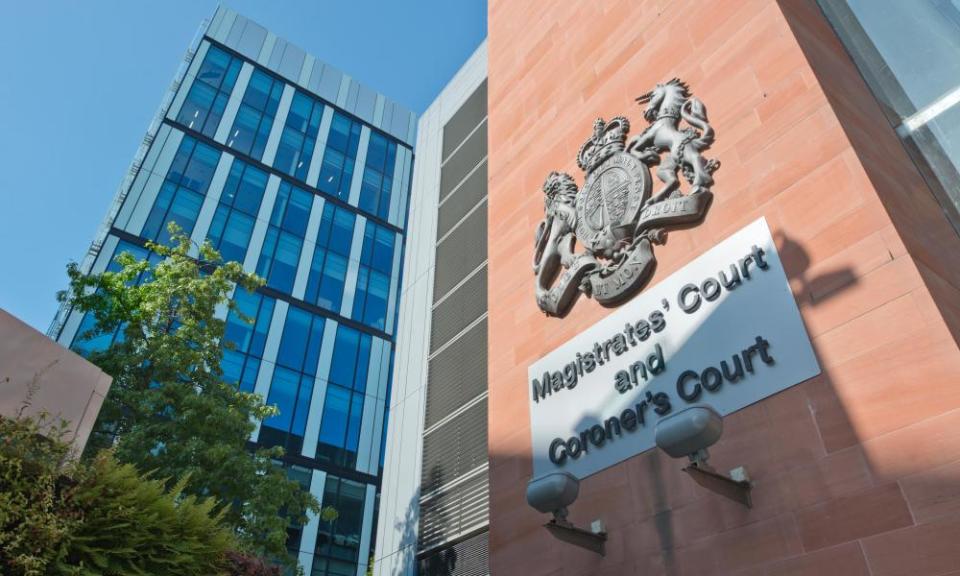Our justice system is in crisis, so why not abolish jury trials?

A crisis can often be an opportunity. According to figures out this week, the court system in England and Wales is approaching collapse. Unlike hospitals and schools, courtrooms get no publicity.
The Covid pandemic has led to a reported buildup of 457,000 criminal cases, an increase of about 100,000 since the pandemic began. More than half of England and Wales’s 410 courthouses are reported to be “unsafe” or out of use. As a result 12% of those incarcerated are on remand, and thousands of possible criminals are at large. The Vietnamese lorry deaths trial has twice ground to a halt as jurors have had to go into quarantine. In another case, a woman who suffered extreme domestic violence in 2019 has had her case postponed and has now been told it may not come to court before 2022.
Justin Russell, the chief inspector of probation, warns of a risk now that victims “will withdraw support for prosecutions because they have lost faith in the process. Witnesses will find it difficult to recall events …” Prosecutions will simply collapse. Magistrates hear some cases online, but in serious trials this is unsatisfactory.
The government should take the opportunity to give the system a long-overdue reform. Jury trials are archaic, and should be abandoned other than in exceptional cases. In addition, the restrictive job demarcation between solicitors and barristers should end. All qualified lawyers should have rights of audience before any judge or panel of judges.
After three terms as a juryman, I am convinced that juries are a costly indulgence. They have nothing to do with justice except often to distort it. One of our cases was of drunken assault, with the guilty being “bound over to keep the peace”; my fellow jurors were furious at spending so much time on the trial. Another was a fraud case in which most of the evidence was a total mystery. A third was a blatant attempted murder. We listened for two days as young barristers were corrected continuously by the judge, who eventually declared all relevant evidence “prejudicial” and told us to acquit. It was a farce.
Few countries any longer use juries, and most of them are former British colonies, such as the US, Canada and Australia. They are a relic of medieval civic duty that once embraced compulsory service as constables, vestrymen and dog-catchers. A few European countries call on juries in matters of public opinion or taste – which is why I would use them for local planning disputes where lay opinion is entitled to a view.
The crime and incarceration rates in England and Wales are notoriously among the worst in western Europe. I am convinced that a significant reason is that the jury system presents each case as a staged drama enveloped in publicity, an echo of a public hanging. Jurors naturally associate guilt with imprisonment, and judges tend to do likewise.
Either way, our system is obsessed with imprisonment above all other forms of punishment. In Scandinavia and Germany, prison is strictly a last resort. A former Tory home secretary, Kenneth Baker, was once so fed up with overcrowded jails that he thought of rationing each judge to a fixed number of cells a month.
All professions are conservative, but none more so than the law. Bishops and academics may still insist on wearing medieval gowns, but at least they are rid of wigs. Lawyers, or at least barristers, love dressing up before juries because they are a ritual audience before whom they can display their talents. Many middle-class jurors – those who have failed to be excused service in court – claim to rather enjoy it, as it offers them a glimpse of life in the underworld. Jury duty is national service for grownups, with lawyers as officers.
Most substantive disagreement in criminal trials is over identity, digital electronics or detailed finance. These issues are usually of technical fact, rather than a balance of observation. They are rarely clarified by legal rhetoric, any more than would be a surgical operation or a scientific experiment. In addition, jury verdicts never give reasons, which must increase their susceptibility to being appealed. As a lawyer of my acquaintance put it, “juries are just cost factories”.
These institutions are eroding. In the US, they are waning fast in the face of what is now the overwhelming use of plea bargaining, covering more than 97% of federal cases. In effect, justice is passing to lawyers negotiating with each other, which is probably what it should be. In Britain, juries have retreated from civil cases and complex frauds, and more recently domestic abuse and where there is a risk of tampering. Now must be the time to end them, at the very least by the use of pilots in areas of acute backlog.
The exclusivity of the 16,000 barristers in England and Wales is also on the wane. They have seen the admission of some 6,000 specialist “solicitor-advocates” into courtrooms, a process that must improve efficiency. Otherwise, a restrictive practice thought vital to justice nowhere else in the world is now aiding the collapse of our court system. This must be indefensible.
Simon Jenkins is a Guardian columnist

 Yahoo Finance
Yahoo Finance 